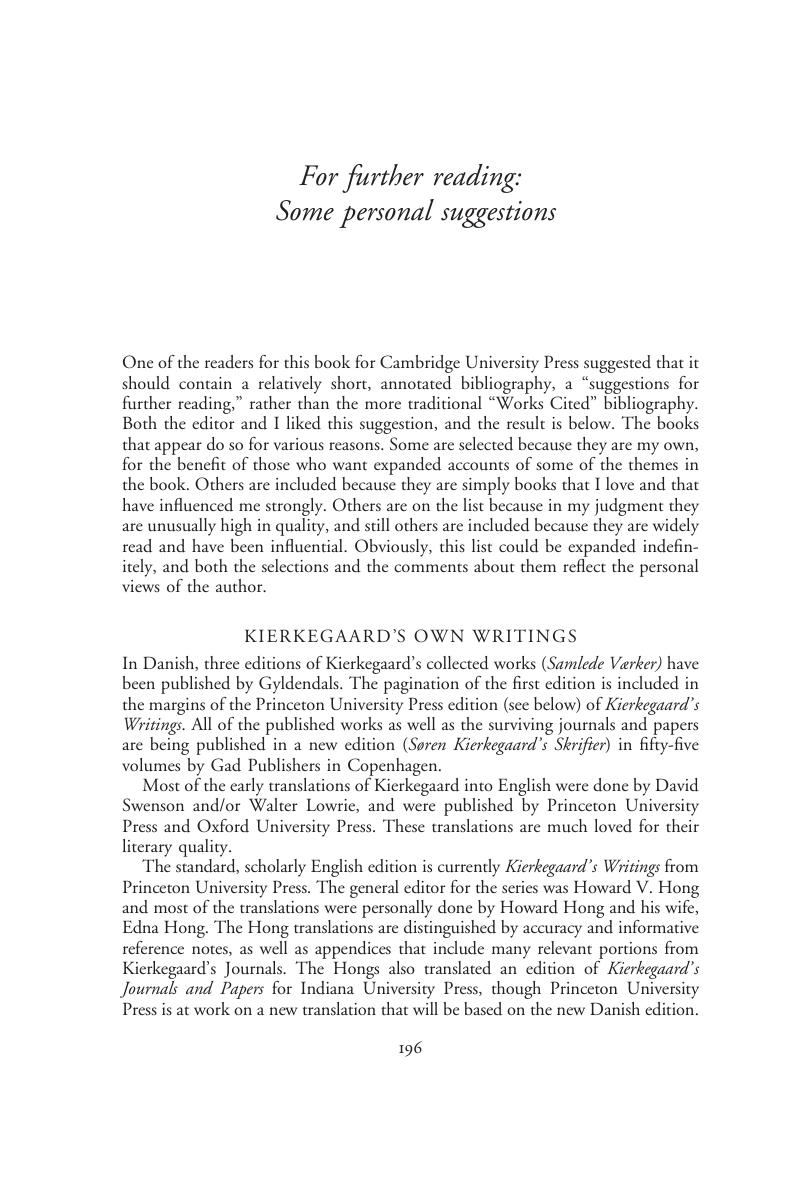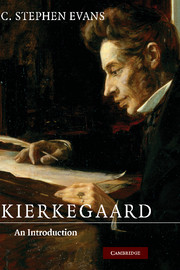Book contents
- Frontmatter
- Contents
- Preface
- Chronology
- Sigla used for Kierkegaard's published writings
- 1 Introduction: Kierkegaard's life and works
- 2 Pseudonymity and indirect communication
- 3 The human self: Truth and subjectivity
- 4 The stages of existence: Forms of the aesthetic life
- 5 The ethical life as the quest for selfhood
- 6 Religious existence: Religiousness A
- 7 Christian existence: Faith and the paradox
- 8 Kierkegaard's dual challenge to the contemporary world
- For further reading: some personal suggestions
- Index
- References
For further reading: some personal suggestions
Published online by Cambridge University Press: 05 June 2012
- Frontmatter
- Contents
- Preface
- Chronology
- Sigla used for Kierkegaard's published writings
- 1 Introduction: Kierkegaard's life and works
- 2 Pseudonymity and indirect communication
- 3 The human self: Truth and subjectivity
- 4 The stages of existence: Forms of the aesthetic life
- 5 The ethical life as the quest for selfhood
- 6 Religious existence: Religiousness A
- 7 Christian existence: Faith and the paradox
- 8 Kierkegaard's dual challenge to the contemporary world
- For further reading: some personal suggestions
- Index
- References
Summary

Information
- Type
- Chapter
- Information
- KierkegaardAn Introduction, pp. 196 - 200Publisher: Cambridge University PressPrint publication year: 2009
